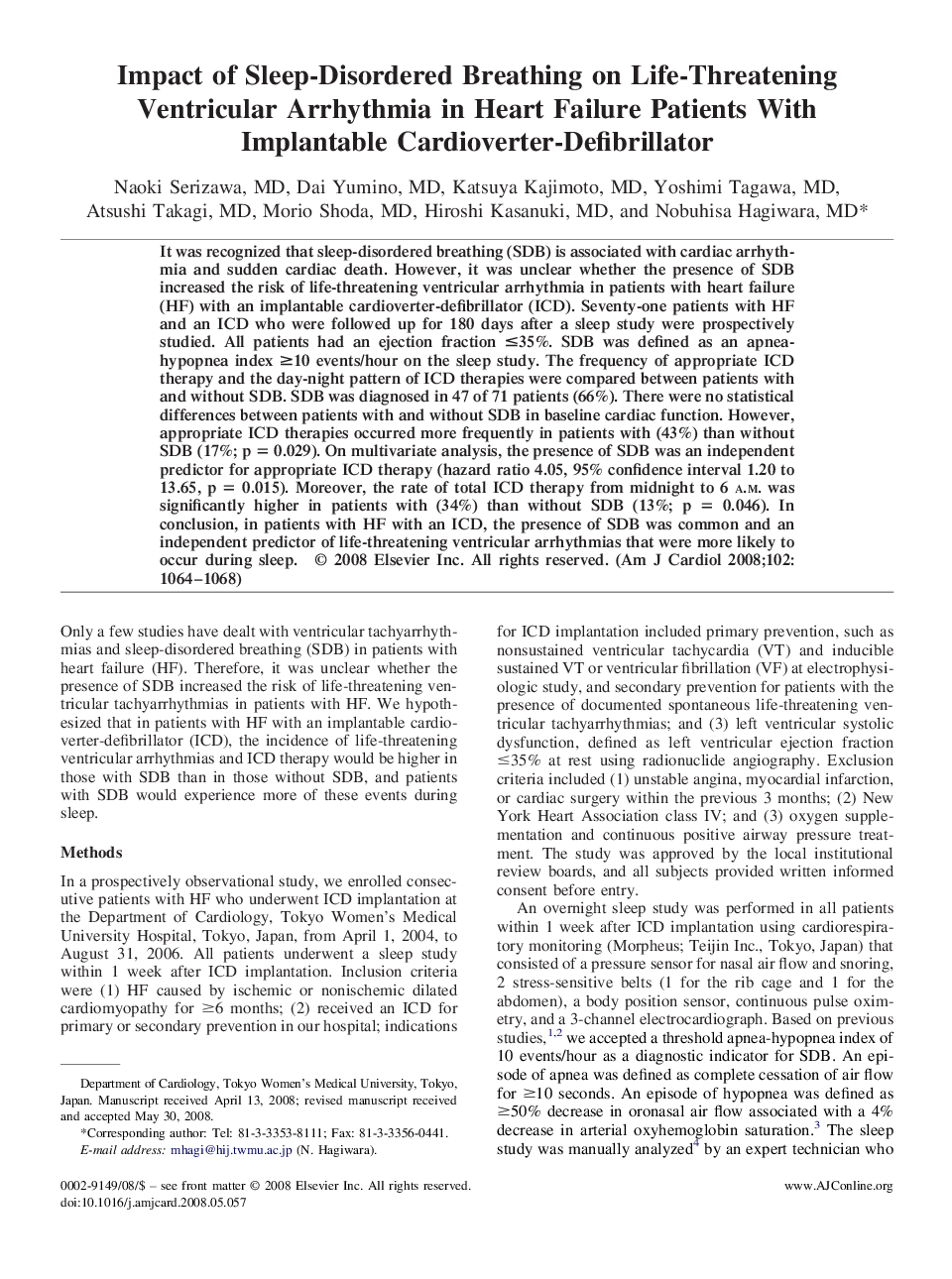| کد مقاله | کد نشریه | سال انتشار | مقاله انگلیسی | نسخه تمام متن |
|---|---|---|---|---|
| 2859761 | 1572320 | 2008 | 5 صفحه PDF | دانلود رایگان |

It was recognized that sleep-disordered breathing (SDB) is associated with cardiac arrhythmia and sudden cardiac death. However, it was unclear whether the presence of SDB increased the risk of life-threatening ventricular arrhythmia in patients with heart failure (HF) with an implantable cardioverter-defibrillator (ICD). Seventy-one patients with HF and an ICD who were followed up for 180 days after a sleep study were prospectively studied. All patients had an ejection fraction ≤35%. SDB was defined as an apnea-hypopnea index ≥10 events/hour on the sleep study. The frequency of appropriate ICD therapy and the day-night pattern of ICD therapies were compared between patients with and without SDB. SDB was diagnosed in 47 of 71 patients (66%). There were no statistical differences between patients with and without SDB in baseline cardiac function. However, appropriate ICD therapies occurred more frequently in patients with (43%) than without SDB (17%; p = 0.029). On multivariate analysis, the presence of SDB was an independent predictor for appropriate ICD therapy (hazard ratio 4.05, 95% confidence interval 1.20 to 13.65, p = 0.015). Moreover, the rate of total ICD therapy from midnight to 6 a.m. was significantly higher in patients with (34%) than without SDB (13%; p = 0.046). In conclusion, in patients with HF with an ICD, the presence of SDB was common and an independent predictor of life-threatening ventricular arrhythmias that were more likely to occur during sleep.
Journal: The American Journal of Cardiology - Volume 102, Issue 8, 15 October 2008, Pages 1064–1068